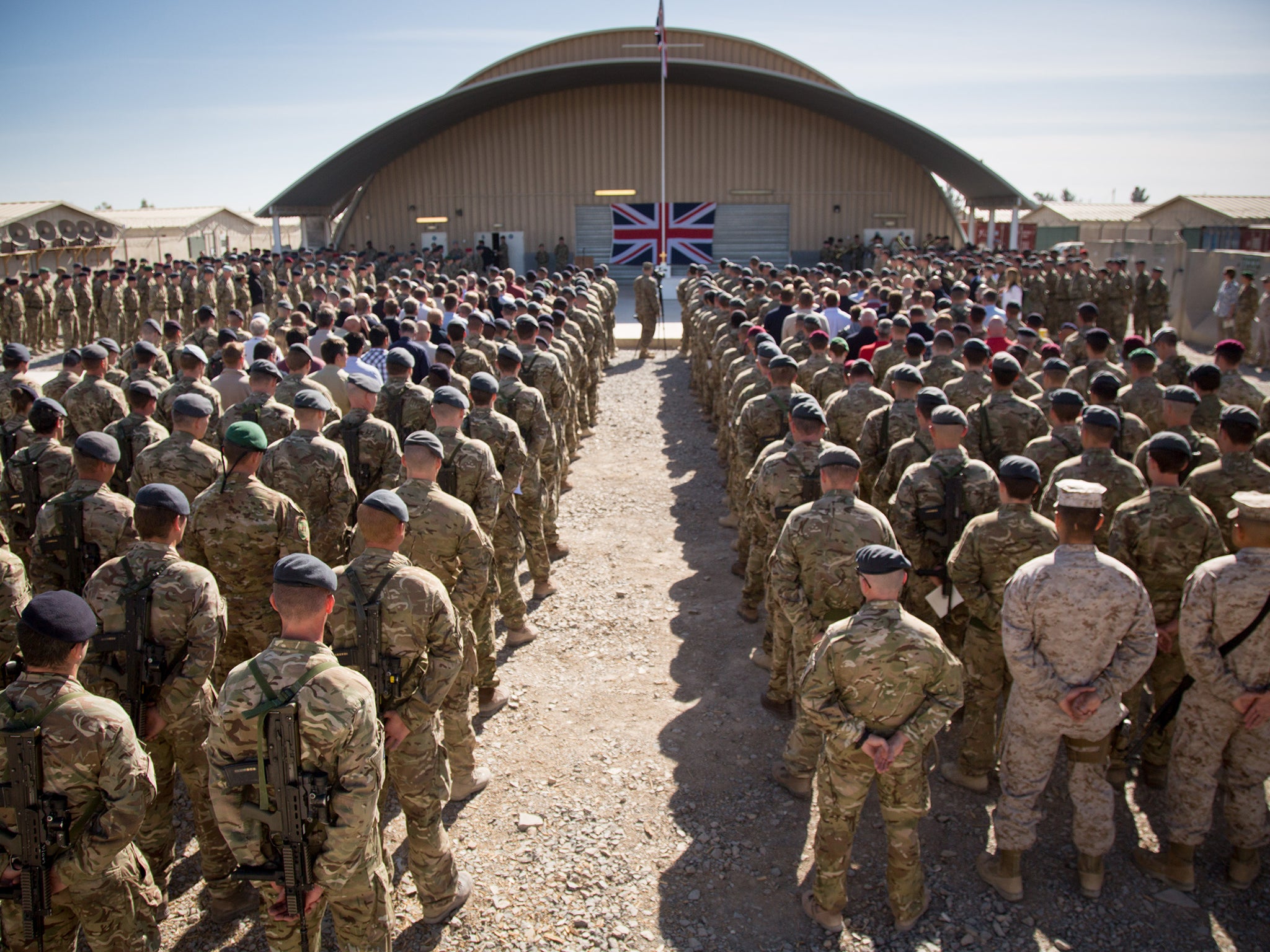Whatever the merits of the defence review, ministers should not play politics with national security
Trident announcement is perfectly timed to exacerbate the tension between Jeremy Corbyn and his Shadow Cabinet

It does seem long ago that Britain seemed to be so safe from attack that Tony Blair could afford to send troops into action in Iraq, Afghanistan, Sierra Leone and Kosovo – with varying degrees of justification – to deal with people he regarded as bad guys, but who presented no immediate threat to this country’s security. David Cameron followed his example by using air strikes to help bring down the Gaddafi dictatorship in Libya.
That mission to spread democracy by military means was a by-product of the confident sense of security that followed the collapse of the communist empire in Eastern Europe, and the IRA’s decision to lay down its arms. But Europe does not seem so safe any more – and not just because of the horrific attacks on civilians in Paris. Russia’s actions in Ukraine and Syria have raised fears that some blunder or reckless act could draw Nato into a confrontation with its huge eastern neighbour.
It is, therefore, the right time to be asking whether the military budget, shrunk by the Government’s austerity programme, should be increased, and whether the resources are being deployed where they are needed most. The announcement of an extra £178bn to be added to the defence budget over the next decade is an implied admission that the cuts imposed in the defence budget in 2010 and 2013 were too severe.
There are to be 1,900 more spies, plus 700 extra personnel for the Royal Navy and RAF, which is a sensible reaction to the perennial problem of how to prevent terrorist attacks by people who do not advertise their presence until it is too late to stop them. Should such people succeed in launching an attack, there will be 10,000 military personnel able to surge quickly on to the streets to back up the police. Two new “strike brigades”, both of about 5,000 troops, will be able to respond rapidly to sudden threats outside the UK; we do not know where a threat is most likely to materialise.
It will not please the Royal Navy or the unions that they are getting only eight new frigates, but it makes sense to invest instead in aircraft equipped with sensors that can detect submarines, instead of having to ask the French to patrol our coastline for us.
But there was one item that stood out in a generally sensible package that Mr Cameron put before Parliament. The estimated cost of renewing Trident has ballooned, from £25bn to £31bn, and in case it rises even further the Government is putting another £10bn into a contingency fund. Those with a suspicious mind might think it no accident that the Conservatives made that announcement on the day before the SNP is due to force a Commons vote on whether Trident should be scrapped (a view Jeremy Corbyn shares, though it is not the official Labour policy). By accident or design, the announcement is perfectly timed to exacerbate the tension between the Labour leader and the majority of his Shadow Cabinet.
Mr Cameron could not resist taunting Mr Corbyn in the Commons – given the Labour leader’s record on defence, that is not difficult – but Labour is in such a sorry state that the Tories scarcely need to look for party political advantage. On an issue of this important, they certainly should avoid any appearance of doing so.
Join our commenting forum
Join thought-provoking conversations, follow other Independent readers and see their replies
0Comments